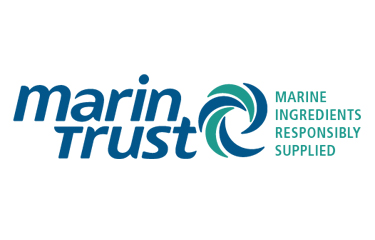MarinTrust, the global marine ingredient standard for responsible supply (formerly IFFO RS), has published a new version of its Chain of Custody, according to a 1 September announcement.
Effective from 30 November, when application process will begin, the latest MarinTrust Chain of Custody incorporates a variety of new features, including: audit technologies to source the origin of certified MarinTrust compliant marine ingredients; recognition of other standards (such as Global Food Safety Initiative-recognized) and regulatory authority standards; a new risk assessment framework; and new traceability system checks.
Following 30 November, MarinTrust said a transition period will be announced and commence “in due course.”
“We want to provide the industry with a clear and updated statement of the requirements of our Chain of Custody certification,” MarinTrust CEO Francisco Aldon said of the new development. “Its main objectives are to ensure that full traceability of marine ingredients is maintained throughout the supply chain, with no use of illegal, unreported, and unregulated (IUU) fishery materials. Besides, this new version gives assurance to a labeled certified claim on a feed or fish oil product that it uses marine ingredients that originate from a certified ‘MarinTrust factory. It is essential both for our clients’ and our standards’ credibility.”
Stelios Stamboli, the CEO of Distral, a Greece-based provider of MarinTrust-certified materials, said his company was involved in trialing the updated Chain of Custody certification prior to its debut.
“As the only MarinTrust certified merchant in Greece, Distral was delighted to support the MarinTrust trial of chain of custody version 2.0 prior to its launch. Maintaining a transparent and innovative traceability guarantee system requires constant efforts and a collaborative mentality with the people operating on the ground, who maintain a relevant and updated standard,” Stamboli said.
Those who purchase Chain of Custody (CoC)-certified material “need to be aware that if CoC certification isn’t held, then there are no assurances that the material is MarinTrust CoC certified and has been sourced from MarinTrust certified producers,” MarinTrust said.
“If ownership of a CoC certified product is passed to a trader to sell onto an approved buyer, that trader must also gain CoC certification in order to maintain product integrity and an unbroken supply chain,” the organization added.
A business-to-business certification program for the marine ingredients value chain created in 2009, MarinTrust became an official, full member of the ISEAL Alliance in May of this year. MarinTrust joined ISEAL as an associate member in 2018; with its new full-member status, the organization will be required to demonstrate and maintain full compliance to ISEAL Codes of Good Practice, which upholds responsible fishmeal and fish oil sourcing and manufacturing.
SeafoodSource reported this summer that MarinTrust’s standard for sustainable production of fishmeal and fish oil has been gaining ground globally, though less so in China. As of May, 150 plants in 20 countries were certified to MarinTrust standards, but no fishmeal plant in China was among them, despite the country being the world’s biggest user of fishmeal and fish oil.
“So far, we have not received any application from Chinese producers,” Aldon told SeafoodSource at the time. “They can apply for certification or, if required, take more time to improve their production environment by joining the MarinTrust Improver Program.”
Five Chinese companies have obtained the MarinTrust chain of custody certification for imported certified fishmeal and fish oil, though, including Zhoushan Sinomega Biotech Engineering Co. and Damao Fish Oil Co.







